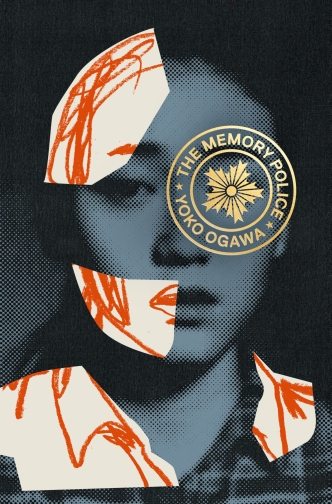 Normally when I finish a book, I pick up another so as not to be caught without a book on the go. It’s kind of like a form of Abibliophobia – a fear of not being in the middle of a book. It doesnt matter how late it is, I need to pick up the next book. But last night, when I finished Yoko Ogawa’s stunning The Memory Police, a book shortlisted for this year’s International Man Booker Prize, and one I have been trying to get my hands on for some time (thanks COVID-19 for making it harder to order books or use the library), there was no way I could start anything else until I had begun to process what I had just read.
Normally when I finish a book, I pick up another so as not to be caught without a book on the go. It’s kind of like a form of Abibliophobia – a fear of not being in the middle of a book. It doesnt matter how late it is, I need to pick up the next book. But last night, when I finished Yoko Ogawa’s stunning The Memory Police, a book shortlisted for this year’s International Man Booker Prize, and one I have been trying to get my hands on for some time (thanks COVID-19 for making it harder to order books or use the library), there was no way I could start anything else until I had begun to process what I had just read.
Ogawa is a Japanese author and her works generally place there as well – although this is set on a remote island with a small population who experience disappearances on a regular basis. Mainly these disappearances are things… birds, calendars, ferries, harmonicas, roses…. small things and large things simply cease to exist. As they awaken in the morning the citizens feel a stirring and suddenly know something has disappeared… and feel compelled to destroy any they have in their possession. In a particularly evocative scene, our narrator, a novelist living alone, awakens to rose petals floating across the surface of the river, and the citizens dig up their every rose bush and burn them until no traces of roses ever existing remain. All this is monitored by the sinister Memory Police, who also hunt down the few who retain their memories even whilst the rest of the population do not. It is a real thing… our narrator cannot remember so many common items, even though her mother could and was arrested by the Memory Police as a result.
This is the second type of disappearance that goes by uncommented upon by the populace – the disappearance of those who remember.
Perhaps because of her mother’s memories, when she discovers that her editor, known only as R. (there are few character names in this story, except for Don the dog) has the power of memory, our narrator volunteers to hide him in a secret room in her home. Although he may appear to be totally in her power, the power of memory fills him and he tries to compel the novelist, and the dear old friend she makes her accomplice to begin remembering things, suggesting that each loss diminishes their souls. While the novelist occasionally has a tickle of memory, more than most perhaps, she, like the others accepts each loss with equanimity. This is not a novel of rebellion, but a warning perhaps of how such losses can become to seem routine.
Although the novel was first published in Japanese 40 years ago, these messages echo and resonate now as we find ourselves handing over so many civil liberties in the current global pandemic.
When novels themselves disappear, the book also begins to comment upon the power of stories, and our narrator is changed and limited by this part of her that goes missing. But even then, she accepts and moves on, much to the horror of R.
The most shocking disappearance occurs 30 pages from the end of the novel and I could not put it down until I could find out how this would be handled… and I dare anyone else to do the same. This is our first hint of how the novel will end.
Perhaps even more disturbing (and I know I am using a lot of phrases like this – but trust me – this is a thought provoker, and one I enjoyed more than Margaret Atwood’s over-rated The Testaments, another dystopian fiction that jointly won the Man Booker), are the strange reverse parallels of the book itself, and the story the narrator is writing. This is about a typist who falls for her typing instructor but loses her voice, and in doing so, eventually fades away almost completely. It begins as a gentle romance but turns into a nightmare. conversely – and I’ll spoil a little here so feel free to skip the rest of this paragraph – the people of The Memory Police, disappear completely EXCEPT for their voices, which appear to be the last thing to go. This suggests a sense of knowing in the narrator, like she knows what will happen and understands more consciously the dangers of the world she lives in, but also seems to comment to the reader on the dangers of not using our voice in times of oppression. In one story a lack of voice leads to a fading away from existence, and in the other, having a voice and not using it, is just as dangerous for your sense of self. In both stories evil triumphs.
This is going to stay with me for quite some time. I haven’t read any of the other International Man Booker nominees, so perhaps quite unfairly I will be rooting for this one. It’s one every inquiring mind should pick up.


 This is my read of the year so far – although admittedly I have not finished The Testaments yet. Its the kind of book that makes you gasp audibly towards the end, and that you look forward to the moments in each day that you can slot in a good read.
This is my read of the year so far – although admittedly I have not finished The Testaments yet. Its the kind of book that makes you gasp audibly towards the end, and that you look forward to the moments in each day that you can slot in a good read.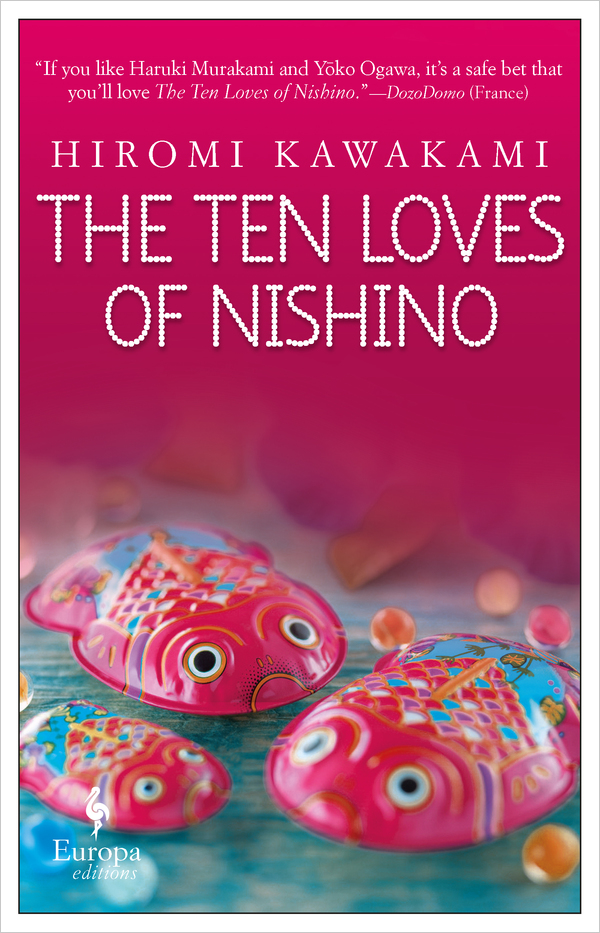 I picked this up at a tiny mobile bookstore in Times Square called The Strand, a haven of quiet reading amidst the lights and crowds. When the front cover said it was a perfect pick for lover of Haruki Murakami, I couldn”t resist.
I picked this up at a tiny mobile bookstore in Times Square called The Strand, a haven of quiet reading amidst the lights and crowds. When the front cover said it was a perfect pick for lover of Haruki Murakami, I couldn”t resist.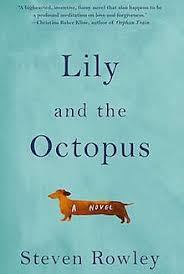 I had this saved on my Audible wishlist and when it came on sale I thought I might give it a try. I’d obviously marked it some time last year as an interesting reading possibility. The result was both beautiful and devastating. This is a book both for, and not for dog lovers.
I had this saved on my Audible wishlist and when it came on sale I thought I might give it a try. I’d obviously marked it some time last year as an interesting reading possibility. The result was both beautiful and devastating. This is a book both for, and not for dog lovers.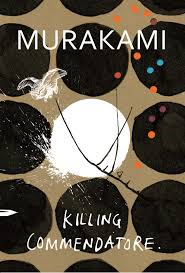 I’ve seen reviews describe Haruki Murakami’s latest opus as ‘rambling’, and I would have to agree. Killing Commendatore is a slow-paced and lengthy odyssey into a traditionally mysterious and unresolved Murakami wonderland. This time, I struggled to keep my eyes open for long sections in the early and middle sections of the book. But this is just something you have to accept about a Murakami novel – he spends painstaking time creating both the ordinary and the extraordinary worlds his characters inhabit. But I’d suggest this is one for the fans only – his earlier works are a little punchier.
I’ve seen reviews describe Haruki Murakami’s latest opus as ‘rambling’, and I would have to agree. Killing Commendatore is a slow-paced and lengthy odyssey into a traditionally mysterious and unresolved Murakami wonderland. This time, I struggled to keep my eyes open for long sections in the early and middle sections of the book. But this is just something you have to accept about a Murakami novel – he spends painstaking time creating both the ordinary and the extraordinary worlds his characters inhabit. But I’d suggest this is one for the fans only – his earlier works are a little punchier.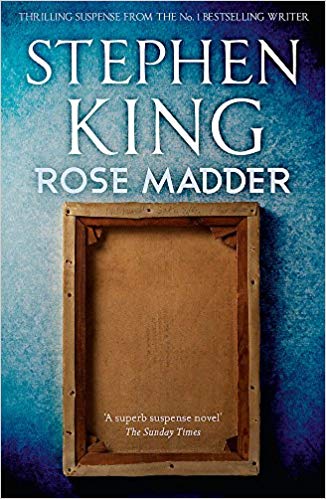 I decided to fill in one of my Stephen King gaps by listening to Rose Madder, a title that hadn’t caused a lot of interest in the past.
I decided to fill in one of my Stephen King gaps by listening to Rose Madder, a title that hadn’t caused a lot of interest in the past.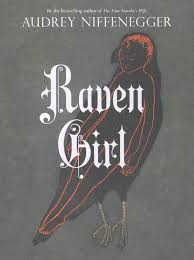 I found this short book in a library sale. Picking it up for our book nooks, I could not resist reading it myself first. After all, The Time Traveller’s Wife was a pretty great read, I even if I didn’t enjoy Her Fearful Symmetry.
I found this short book in a library sale. Picking it up for our book nooks, I could not resist reading it myself first. After all, The Time Traveller’s Wife was a pretty great read, I even if I didn’t enjoy Her Fearful Symmetry. Stephen King’s latest novella, Elevation is a short read or short listen if like me, you’re a fan of audio books.
Stephen King’s latest novella, Elevation is a short read or short listen if like me, you’re a fan of audio books.